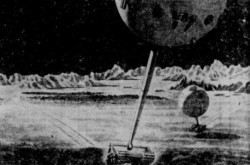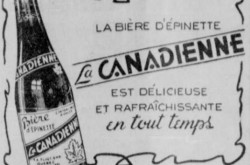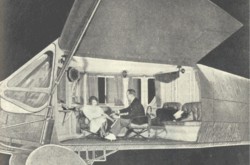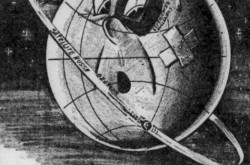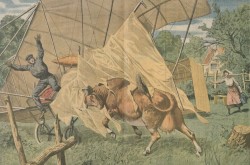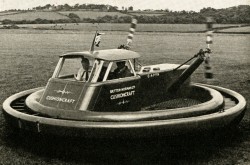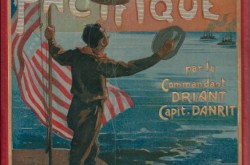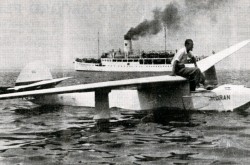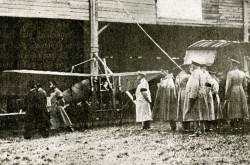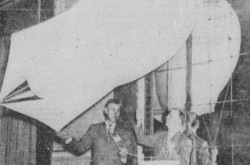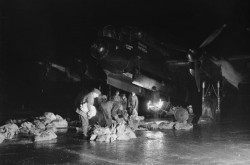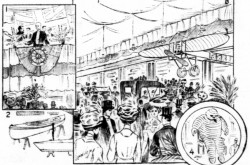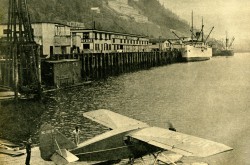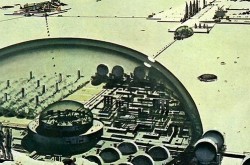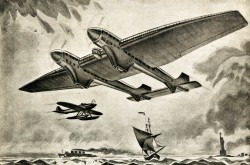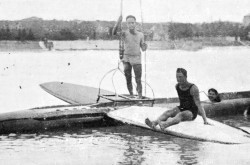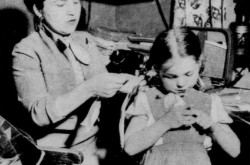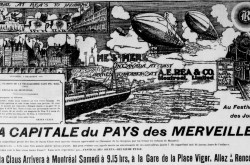“The bomb that will kill the porpoise” – A shocking use of air power in interwar Québec: The bombing of the beluga whales of the St. Lawrence River, part 2

Allow me to welcome you to this 2nd part of our article on a shocking use of air power in interwar Québec, namely the bombing of pods of beluga whales which lived in the waters of the St. Lawrence river. As shocking as the subject of this article is, it nonetheless deserves a somewhat in-depth look.
In 1926-28, fishermen in the North Shore region of Québec claimed to be deprived of their catches by the depredations of beluga whales. In 1927, for example, in the region between Rivière-Pigou and Mingan, Québec, salmon and cod catches were respectively reduced by 80 and 90%, or even more, stated Oscar Jules Morin, Deputy Minister of municipal affairs, and Alphonse Lessard, director of the Service provincial d’hygiène, two people who were not great experts in commercial fishing, after a stay in the region in July. Deprived of most of their income, families were going through terrible times. Morin and Lessard spoke of a threat of famine.
Some desperate fishermen suggested the use of machine guns or the creation of a large-scale hunting program. Others claimed to remember reading around January or February 1927 in a Québec, Québec, daily, Le Soleil, that aircraft had been used off the German coast to bomb pods of beluga whales which were devastating the fisheries. Could the same thing not be done on the North Shore?
A brief digression if I may. Yours truly must admit not having found the slightest mention of German bombings in Le Soleil or elsewhere, and no more in 1927 than in other years. If such mentions exist, I would be deeply grateful if you would let me know. End of digression.
Questioned in July 1927 by a journalist from Le Soleil, the government deputy sitting in the Assemblée législative de la province de Québec who represented the North Shore, the lawyer Edgar Rochette, asserted that beluga whales had considerably reduced the catches of fishermen from the region of Rivière-Pigou and Mingan in 1926. Residents of the region were on the verge of despair. It was absolutely necessary to put an end to the annual depredations of beluga whales.
Many North Shore fishermen signed petitions demanding that the provincial government act. Municipal councils in the region adopted resolutions to the same effect. Everything obviously went at least in part to Québec, where the government was headed since July 1920 by Louis-Alexandre Taschereau, a lawyer mentioned several times in our politically correct blog / bulletin / thingee, and this since April 2019.
Questioned by the press in September 1927, a Franco-Canadian missionary from the Congregation of Jesus and Mary of the roman catholic church stationed in the Mingan region since 1918 confirmed the distress in which fishermen families he knew well found themselves. Louis Garnier added that a terrible storm, around mid-August, had also destroyed numerous rowboats and demolished at least one building. It was with terror that many families saw the winter of 1927-28 approaching.
The gigantic and voracious beluga whale did not only reduce the catch of cod and salmon. Nay. Eel fishermen who worked a little upstream from Québec having caught little in 1927, they in turn blamed that cetacean, which was however completely absent from that sector of the St. Lawrence River.
Testifying in March 1928, in Ottawa, before the Royal Commission Investigating the Fisheries of the Maritime Provinces and the Magdalen Islands, a Québec lawyer, federal deputy representing the North Shore and chief whip of the party in power in the House of Commons of Canada asserted that the number of beluga whales present in the estuary and gulf of the St. Lawrence River had increased considerably since the early 1920s.
According to Pierre-François Casgrain, words translated here, that cetacean was “a dangerous agent of destruction and a real threat to the local fisheries.” Their depredations were among the factors which endangered the very survival of the fishing industry on the North Shore. The federal government had to help local people hunt and kill as many beluga whales as possible, an opinion shared by the aforementioned Garnier.
According to many fishermen, granting a reward for each animal killed would be preferable to simply destroying beluga whales, however. After all, many of them already hunted and cut down those animals, an activity which ate into their already severely affected incomes.
While recognising the seriousness of the situation, Émile Benoist, a journalist working for Le Devoir, a daily from Montréal, Québec, could not help but end an article published in April with a somewhat ironic sentence, translated here: “The porpoises [sic] are indeed to be pitied, now that they have the chief whip of the Liberal party against them!”
No later than March 1928, the physician / marine fisheries inspector Joseph Émile Bernier presented a report on the damage caused by beluga whales to his colleagues of a non-profit organisation dedicated to conservation, the Société Provancher d’histoire naturelle du Canada of Québec. Yes, the city.
Reacting to pressure, the provincial government announced in the spring of 1928 the holding of an investigation aimed at finding ways to get rid of the beluga whales.
The person leading said investigation was a lecturer at the Department of Zoology of Harvard University and the curator responsible for mammals at the Museum of Comparative Zoology associated with that prestigious American university. The American zoologist Glover Morrill Allen had as his main collaborator a wealthy American conservationist / sport fisherman / amateur naturalist, Copley Amory.
Indeed, Amory spent some time at his summer house / fishing camp, a real castle it was said, near the Matamek River, on the North Shore, testing various pieces of equipment intended for hunting beluga whales.
Mind you, Amory might, I repeat might, have contacted the Ministère de la Colonisation, des Mines et des Pêcheries of Québec as early as 1926, and this in order to offer his services, and this, again, at no cost. Amory might even have been the person who had suggested that Allen be involved in research to end the beluga whales’ exactions.
And no, there was apparently no one in Québec or Canada able, or willing, to take on that assignment, which seemed a tad odd, but back to our story.
Fearing another bad fishing season, the management of a weekly published in Rimouski, Québec, Le Progrès du Golfe, made strong comments, translated here, on the difficult situation of the fishermen of Eastern Québec and their wish to get help, in a July 1928 issue:
Will we remain deaf to their legitimate request, or will we wait until, as someone recently wrote, the fishing industry in Gaspésie is irremediably ruined? And it will be so if the fishermen, powerless to combat alone the scourge from which they suffer, not receiving the required assistance, allow themselves to be discouraged, abandon their rowboats and nets to the whims of the waves to find their sustenance on more hospitable shores.
Le Bulletin des agriculteurs published that text that same month of July.
A few days earlier, the agronomist Firmin Létourneau had arrived in Montréal after a brief stay on the North Shore during which he had had plenty of time to chat with fishermen.
That secretary of the Association des Gaspésiens de Montréal, editor of the aforementioned Le Bulletin des agriculteurs, a weekly, and founding president of a cannery, Le Poisson de Gaspé Limitée of… Mont-Louis, Québec, presented a resolution aimed at protecting salmon and cod fishing in Québec during the annual meeting of the Canadian Fisheries Association in Montréal. That unanimously adopted resolution asked the Minister of colonisation, mines and fisheries of Québec, Joseph-Édouard Perrault, to immediately take measures to resolve the serious problem posed by the beluga whale.
During a long stay in France between May and July 1928, a stay during which he attended several congresses and conferences, as well as giving himself some good chow, Perrault had the opportunity to chat with Louis Roule, a French marine biologist / embryologist / ichthyologist / professor and holder of the chair of herpetology and ichthyology at the Muséum national d’histoire naturelle, in Paris, France, and…
To answer the question you were about to ask, my reading friend, herpetology and ichthyology are the branches of zoology devoted to the study of reptiles and fish, but back to our story.
Roule informed Perrault that none of the many methods used over the years to eliminate beluga whales had given satisfactory results. Active hunting by fishermen, however, brought them some income, which was a tad curious given the fact that there were no beluga whales in French territorial waters. It was probably other species of cetaceans which perished under the bullets or harpoons.
And yes, my reading friend, the Muséum national d’histoire naturelle was indeed mentioned in April 2019 and June 2024 issues of our dazzling blog / bulletin / thingee. I forgot to mention that detail when that world famous museal institution was mentioned in the first part of this article, sorry about that.
Interestingly, during Perrault’s absence perhaps, the Ministère de la Colonisation, des Mines et des Pêcheries du Québec might have contacted the United States Bureau of Fisheries only to be told that there was not much that could be done to thwart beluga whales.
In August 1928, shortly after his return to Québec, Perrault claimed to have come to the conclusion that beluga whale hunting could provide the beginning of a solution to the problems caused by that marine mammal. Better yet, it could prove quite profitable.
Each adult could in fact provide up to 225 or so litres (50 or so imperial gallons / 60 or so US gallons) of good quality oil. It could also provide 2.25 or so litres (0.5 or so imperial gallon / 0.6 or so American gallon) of a high-quality oil which was highly prized by watchmakers.
Beluga whale skin could be tanned to make good quality leather, said to be highly prized in Europe. Those skins apparently sold for 31 or so cents a kilogram (14 cents a pound), an amount which corresponded to $5.40 or so per kilogram ($2.45 or so per pound) in 2024 currency.
The bones, for their part, could be ground up to be used as fertiliser or poultry feed.
Even the flesh of the beast might be edible, stated the minister, repeating what Roule had told him. This being said (typed?), that flesh, dried or not, could also be used to feed dogs and farm animals.
All in all, each adult beluga whale could bring in $50 to $60 to Québec fishermen, excluding the value of the skin, flesh and bones, a sum which corresponded to $900 to $1 075 or so in 2024 currency, which was not exactly small change.
I know, I know, those human activities were not very attractive. My reading friend, forgive them, for they did not know what they were doing. People in the 1920s did not realise that the beluga whale was present in the waters of the St. Lawrence River in very small numbers. Nor did they realise that it was one of the most charming whales in the world. That extremely sociable animal could also produce a variety of whistles, squeaks, clicks and chirps, which earned it the nickname of canary of the sea.
Following the pressures which assailed him, Perrault went to the North Shore in August 1928 with his deputy minister, Louis Arthur Richard. A gentleman mentioned in a September 2022 issue of our unforgettable blog / bulletin / thingee, the secretary of the province of Québec, its minister of the interior for all intent and purposes, the Québec lawyer Louis Athanase David, accompanied them. The three men visited several villages while travelling aboard the ship which served that region, SS North Shore of the British firm Clarke Steamship Company Limited.
Perrault also asked Joseph Lizotte, a resident of Rivière-Ouelle, Québec, and Omer Martin, a resident of Saint-Jean-Port-Joli, Québec, perhaps, two people familiar with beluga whale hunting, to consider the means to maximise the impact of that activity.
Upon his return to Québec, Perrault announced his intention to revive the great beluga whale hunts of yesteryear, but by moving them from the greater Québec region to the lower part of the St. Lawrence River. Well organised and equipped and carried out by large numbers of well-trained fishermen, that activity could prove to be just as lucrative as cod fishing.
Indeed, after about a month spent on the North Shore, the aforementioned Lizotte and Martin submitted in September a list of several (7?) places where it would be wise to hunt beluga whales.
Perrault also announced that his government would give wood to fishermen so that they could build large rowboats allowing them to fish for cod relatively far from the coast and the beluga whales, the latter preferring to stay near the former.
The minister having noted, and one actually had to wonder how, that beluga whales did not attack halibuts, a large flat fish living off the North Shore that fishermen had never seriously bothered, he suggested that the latter begin commercial fishing for that catch which sold for a lot more money than cod.
At the end of September 1928, Perrault announced his intention to give a small sum of money to any fisherman who would like to acquire a large rowboat allowing him to fish for cod relatively far from the coast and beluga whales. Mind you, those rowboats could be used for hunting beluga whales, and this using rifles or harpoons.
In 1928-29, at least 100 fishermen from the North Shore requested that subsidy of $100, a sum which corresponded to $1 800 or so in 2024 currency. The construction of the rowboats was apparently done under the supervision of village mayors and priests.
All of those statements by the minister were partly due to the fact that the aforementioned Allen had concluded in a report that it would not be practical to bomb beluga whales. And yes, you are right, my reading friend, certain people that Perrault had met on the North Shore had asked him to call upon aerial bombing.
A few days earlier, before Perrault’s September declarations, when the dreaded beluga whale no longer occupied the columns of Québec newspapers, Le Progrès du Golfe made an ironic comment, translated here, in a snippet article entitled, in translation, “If they could speak:”
There is talk of waging a merciless war on the porpoises [sic] whose presence near the coasts chases away the cod they are very fond of.
Those good cetaceans, if they could speak, would say to the human species hell-bent on their destruction: what do you blame us for? To eat the smaller and weaker than ourselves? Big deal! Before punishing us, will you not take an impartial look at what is happening in your home?
At the end of August 1929, the well-known Québec journalist / newspaper owner / pamphleteer / philanthropist Joseph François Olivar Asselin made strong comments on the fishing industry in Québec as part of a conference, “L’industrie dans l’économie du Canada français,” delivered during the meetings of the 1928 Social Week of Canada, in Saint-Hyacinthe, Québec.
Scholar that you are, reading friend, you will of course remember that the Social Weeks of Canada were cultural symposia organised, very often in Québec, between 1920 and 1964, by the roman catholic church to publicise its social doctrine, a doctrine aimed at improving the fate of the urban working class and curb the rise of socialism / communism in industrial and urban settings.
With your permission, I will quote Asselin without using the quotation format commonly used in this place, and this even though his text went well beyond beluga whale hunting.
Beginning of quote, translated here:
Another industry to develop, if not to save: maritime fishing. It seems that for several years something in that direction has been attempted on the Gaspé coast. I want to believe so. However, I know from personal knowledge, having spent all my vacations in that region for ten years, that the Gaspé fisherman adopted the gasoline engine long after his competitors from Nova Scotia, which is not far away, and from New Brunswick, which is just opposite. Until around 1910 he went to sea with the tackle from the time of Jacques Cartier and Nicolas Denis [sic]. Routine, yes; but above all material poverty and fatalism engendered by a century of economic serfdom to which policymakers had turned a blind eye, when they had not – to obtain electoral, pecuniary and other support, from the all-powerful Jersey bosses – lent a hand. The establishment of a fishing credit at the initiative or at least with the assistance of the provincial government would have brought things forward by ten years. Our ministers are talking today about hunting down the porpoise [sic], devourer of herrings, which serves as bait to the fisherman. Hear, hear! well done! provided those good intentions persist after pleasant salmon fishing excursions on rivers all leased out abroad. But for twenty years the fisherman has been wasting half his time hauling catshark, so clumsily nicknamed ‘dogfish,’ and no one has yet taught him that in certain countries that other enemy of the cod, that small shark, in reality a fish of supreme elegance, provides very good preserves to South America. I inquired a few years ago in Ottawa about the possibility of establishing oyster farming on certain points of the Gaspé coast: I was told that the thing would probably be possible in itself, but that, given the contrary claims of Ottawa and Québec on the ownership of the coastal seabed, one should not think about undertaking it. That truly is a fat lot of good for us! In the meantime, a Sainte-Croix family, from Barachois, fishes scallops and makes money there. What the province of Québec and in particular the Gaspésie needs is a fisheries dictator who has drawn his technical knowledge from abroad and has at his disposal all the necessary means of action.
End of quote.
Ow, say ye, my reading friend? Ow, indeed.
Given the importance of the subject and of Asselin’s influence, you will not be surprised to learn that his text was published in full in the pages of the aforementioned Le Bulletin des agriculteurs, in the monthly magazine L’Action canadienne-française of Montréal, as well as in at least 2 weekly newspapers (L’Éclaireur of Beauceville, Québec, and Le Progrès du Golfe of Rimouski) and 1 daily newspaper (La Tribune of Sherbrooke) from small Québec cities.
And here are the answers to the several questions which were gradually condensing in your little noggin:
- Nicolas Denys was a French entrepreneur / explorer / amateur geographer / governor (Acadia, 1654-88?) / industrialist / merchant / amateur naturalist involved in the fishing industry in French North America, in other words in Nouvelle-France.
- The all-powerful Jersey bosses were based on the island of Jersey / Jèrri, one of the British-controlled Channel Islands located near the French coast.
- Barachois was the name commonly given to the village of Saint-Pierre-de-la-Malbaie No. 1, Québec, in Gaspésie.
Rumours circulated according to which the vast beluga whale hunting campaign scheduled to begin in the spring of 1929 could follow two somewhat different routes: the creation ashore of 10 or so mini-beluga whale processing factories supplied by fishermen living near each of them, or the use of a small factory ship supplied by a flotilla of fishing boats. The first route seemed to attract more interest.
A columnist for the daily newspaper La Presse in Montréal wondered about the consequences of the slaughter that would soon strike the beluga: “Perhaps even that animal is called to become completely extinct and to follow the law common to a bunch of animals hunted without pause or mercy.”
Let us not forget, there was a time when immense pods of walruses occupied the Îles-de-la-Madeleine. The last of those pinnipeds disappeared in the 18th century, but I digress.
A member of the provincial opposition who had come to support a candidate of his party during a by-election held in Québec, yes, the city, at the end of October 1928, took advantage of the opportunity offered to him to excoriate the Minister of colonisation, mines and fisheries, the aforementioned Perrault. Maurice Le Noblet Duplessis, a very conservative politician mentioned many times in our apolitical blog / bulletin / thingee, and this since January 2018, asserted, words translated here, that “Perrault had been forced to make a long trip to Europe to learn that the best way to destroy the porpoises [sic] was to kill them.”
By the way, it was not the party of which Duplessis was a member that won said by-election.
Speaking (typing?) of elections, I assume that you would like to be able to vote in favour of a rapid end to the present peroration. I therefore propose to end this 2nd part of the present article, and this here and now. Do you support the motion, my reading friend? Wunderbar!
See ya later.


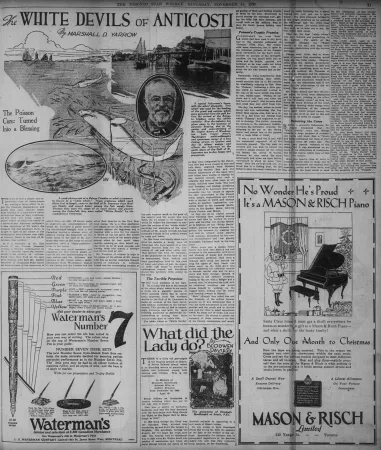


































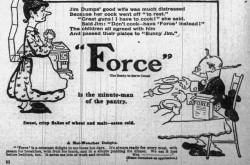

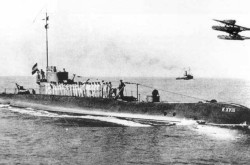
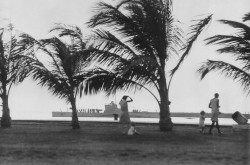
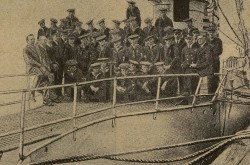
![A block of photographs showing some of the people involved in the bombing of beluga whales in the estuary and gulf of the St. Lawrence River. Anon., “La chasse aux marsouins [sic]. » Le Devoir, 15 August 1929, 6.](/sites/default/files/styles/thumbnail_7/public/2024-09/Le%20Devoir%2015%20aout%201929%20page%206.jpg?h=584f1d27&itok=TppdLItg)
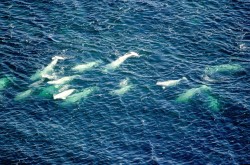
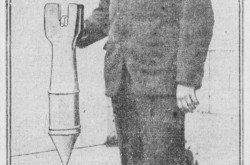







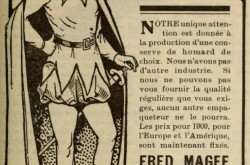

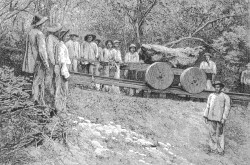


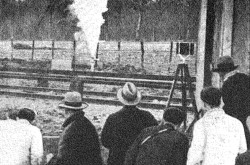



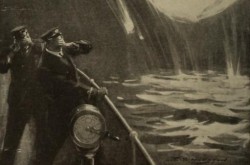
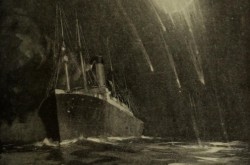






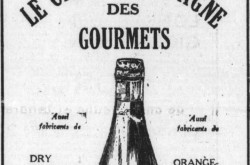

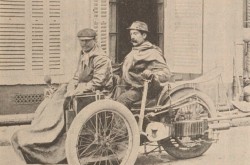

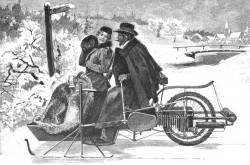




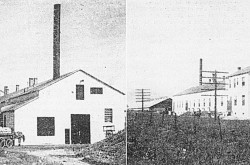
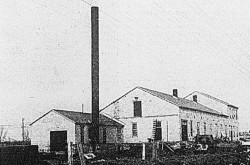
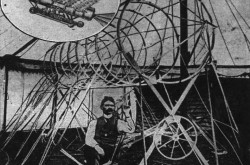
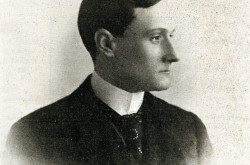
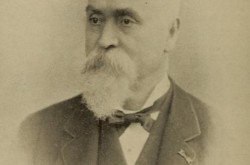
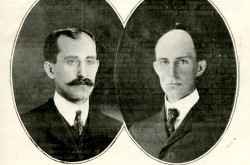

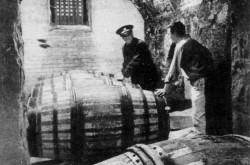
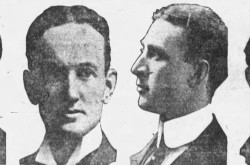





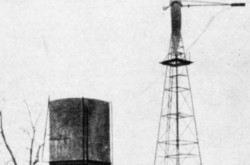

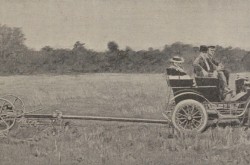
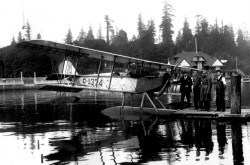

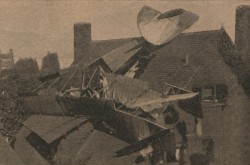








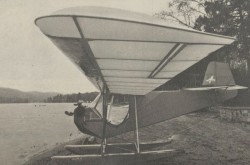
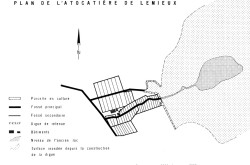
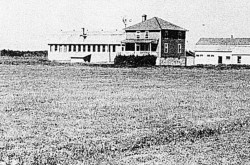


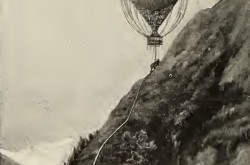





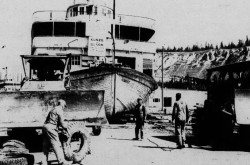
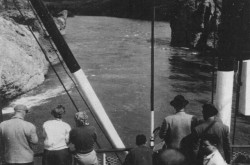
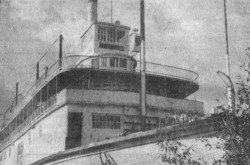




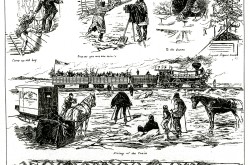
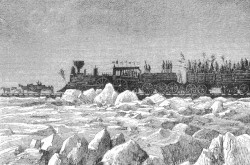

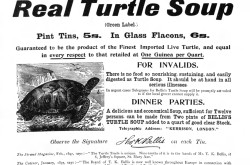
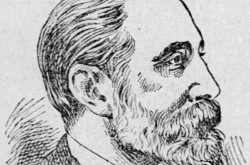

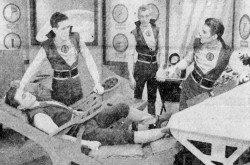





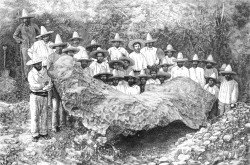
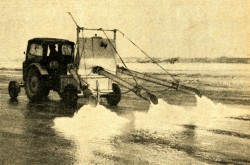

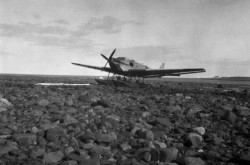
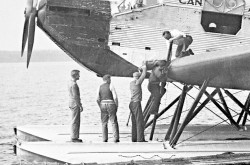

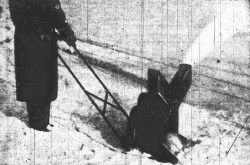





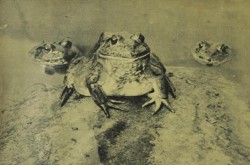
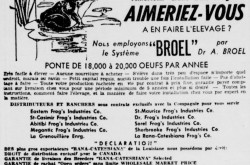
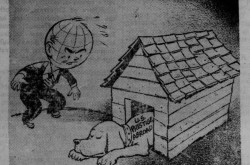
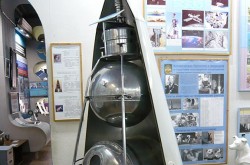




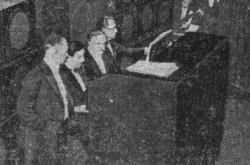



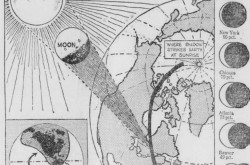
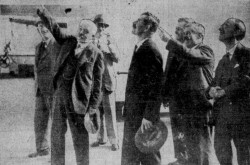
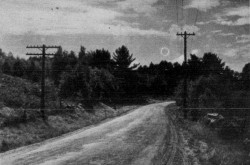




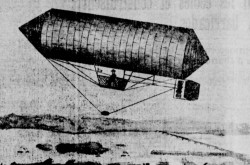










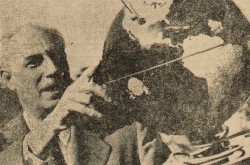



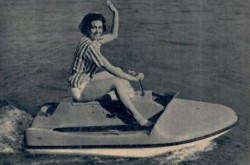





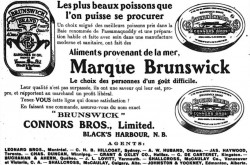


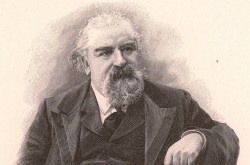
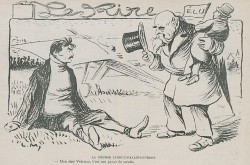



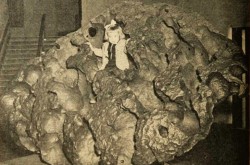


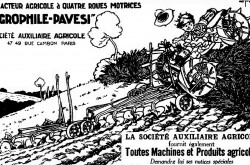

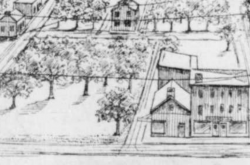



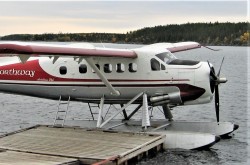


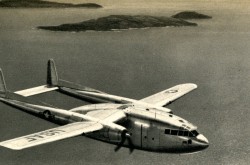



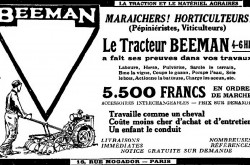
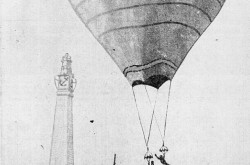






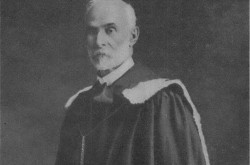











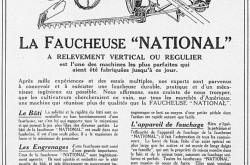
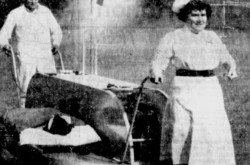


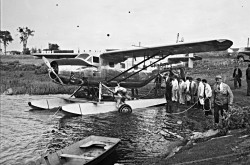



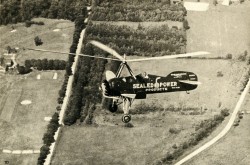
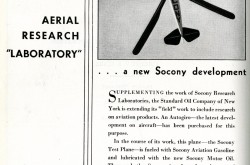
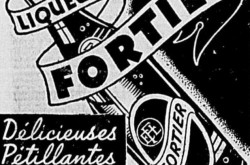



![Peter Müller at the controls [sic] of the Pedroplan, Berlin, Germany, March 1931. Anon., “Cologne contre Marseille – Le mystère du ‘Pédroplan.’ [sic]” Les Ailes, 2 April 1931, 14.](/sites/default/files/styles/thumbnail_7/public/2021-04/Les%20Ailes%202%20avril%201931%20version%20big.jpg?h=eafd0ed4&itok=WnBZ5gMf)
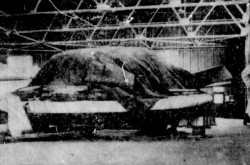








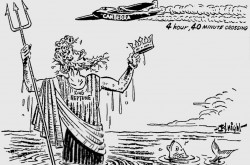

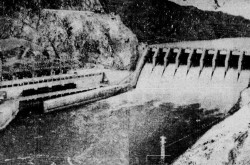
![One of the first de Havilland Canada Chipmunk imported to the United Kingdom. Anon., “De Havilland [Canada] DHC-1 ‘Chipmunk.’” Aviation Magazine, 1 January 1951, cover.](/sites/default/files/styles/thumbnail_7/public/2021-01/Aviation%20magazine%201er%20janvier%201951%20version%202.jpg?h=2f876e0f&itok=DM4JHe5C)

